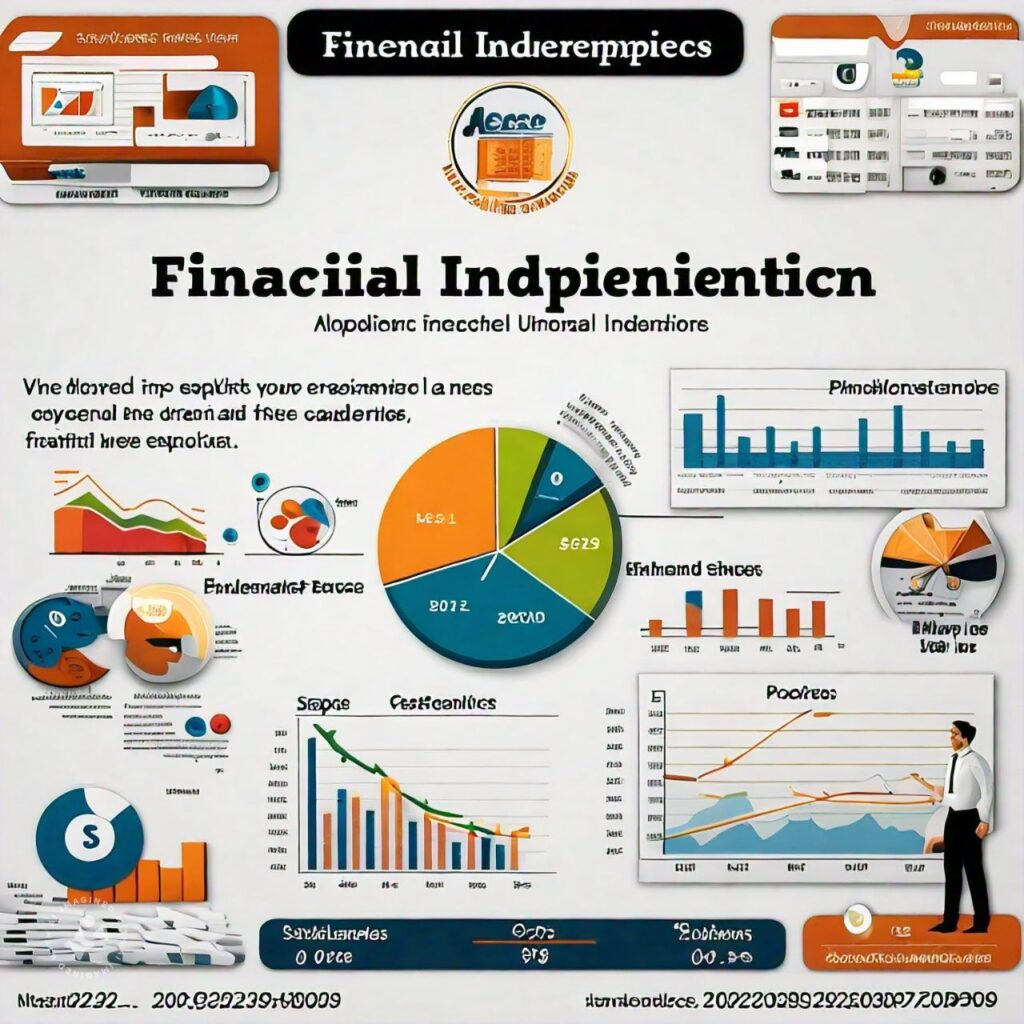Introduction
In today’s fast-paced world, achieving financial freedom is a goal many aspire to. It’s about more than just accumulating wealth; it’s about securing the ability to live life on your own terms. True financial freedom offers peace of mind, allowing you to pursue your passions without the constant worry of financial constraints. This comprehensive guide will delve into the key strategies and principles necessary to attain financial independence.
Understanding Financial Freedom
Financial freedom means having sufficient resources to cover your living expenses for the rest of your life without needing to work or rely on others. It provides the liberty to make decisions that are not solely based on financial considerations. To understand financial freedom, it’s crucial to recognize the following concepts:
1. Defining Your Financial Goals
To achieve financial freedom, it’s essential to set clear, realistic financial goals. These goals will serve as the roadmap to your financial journey. Begin by identifying what financial freedom means to you. Is it retiring early, traveling the world, or simply living without debt?
2. Building a Solid Financial Foundation
A strong financial foundation is the cornerstone of financial freedom. This involves:
- Creating a Budget: Track your income and expenses to understand your spending habits. Use budgeting tools to help manage your finances effectively.
- Establishing an Emergency Fund: Aim to save at least three to six months’ worth of living expenses to cover unexpected financial emergencies.
- Eliminating Debt: Prioritize paying off high-interest debts, such as credit cards and personal loans, to free up more money for savings and investments.
Strategies for Achieving Financial Freedom
1. Increasing Your Income
Boosting your income can accelerate your journey to financial freedom. Consider the following methods:
- Investing in Education and Skills: Higher education and skill development can lead to better job opportunities and increased earning potential.
- Side Hustles and Passive Income: Explore side gigs, freelance work, or passive income streams such as rental properties, dividend stocks, or royalties.
2. Smart Investing
Investing wisely is a crucial component of building wealth. Here are some investment strategies:
- Diversification: Spread your investments across different asset classes to minimize risk. This includes stocks, bonds, real estate, and mutual funds.
- Long-term Investments: Focus on long-term investments that can grow over time, such as retirement accounts and index funds.
- Regular Contributions: Make regular contributions to your investment accounts to take advantage of compound interest.
3. Reducing Expenses
Cutting unnecessary expenses can significantly impact your savings rate. Consider these tips:
- Living Below Your Means: Adopt a frugal lifestyle by reducing discretionary spending and focusing on essentials.
- Automating Savings: Set up automatic transfers to your savings and investment accounts to ensure consistent contributions.
- Negotiating Bills: Regularly review and negotiate bills, such as insurance, utilities, and subscriptions, to get the best rates.

Protecting Your Wealth
1. Insurance
Insurance is a vital component of financial security. It protects you from significant financial losses due to unforeseen events. Ensure you have adequate coverage in the following areas:
- Health Insurance: Covers medical expenses and protects against high healthcare costs.
- Life Insurance: Provides financial support to your dependents in the event of your passing.
- Disability Insurance: Offers income replacement if you are unable to work due to a disability.
- Property Insurance: Protects your home and other valuable assets from damage or theft.
2. Estate Planning
Estate planning ensures your assets are distributed according to your wishes after your death. Key elements of estate planning include:
- Will: A legal document that outlines how your assets will be distributed.
- Trusts: Legal arrangements that allow you to transfer assets to beneficiaries in a tax-efficient manner.
- Power of Attorney: Designates someone to make financial and medical decisions on your behalf if you become incapacitated.
Maintaining Financial Freedom
Achieving financial freedom is a significant milestone, but maintaining it requires ongoing effort and discipline. Consider the following practices:
1. Regular Financial Reviews
Conduct regular reviews of your financial situation to ensure you stay on track. This includes:
- Monitoring Investments: Keep an eye on your investment portfolio and make adjustments as needed.
- Updating Financial Goals: Reevaluate and update your financial goals periodically to reflect changes in your life and priorities.
- Tracking Progress: Use financial software or spreadsheets to track your progress toward financial independence.
2. Continuing Education
Stay informed about personal finance and investment strategies by:
- Reading Financial Books and Articles: Continuously educate yourself on financial topics to make informed decisions.
- Attending Seminars and Workshops: Participate in financial seminars and workshops to gain insights from experts.
- Networking: Connect with other financially savvy individuals to share knowledge and experiences.
3. Mindful Spending
Maintain a mindful approach to spending even after achieving financial freedom. This involves:
- Avoiding Lifestyle Inflation: Resist the temptation to increase your spending as your income grows.
- Prioritizing Value: Focus on purchasing items and experiences that bring long-term value and satisfaction.
- Practicing Gratitude: Cultivate a sense of gratitude for what you have, which can reduce the desire for unnecessary purchases.
Conclusion
Financial freedom is a journey that requires dedication, discipline, and strategic planning. By setting clear financial goals, increasing your income, investing wisely, reducing expenses, protecting your wealth, and maintaining mindful financial practices, you can achieve and sustain financial independence. Remember, the path to financial freedom is unique for everyone, and it’s important to tailor your approach to fit your individual circumstances and aspirations.



